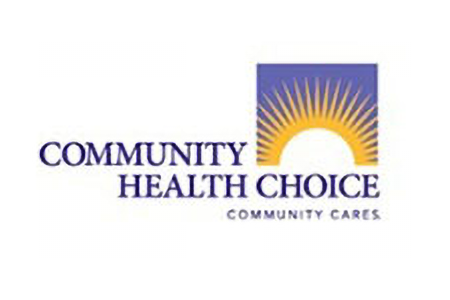PTSD
What Is PTSD?
Posttraumatic stress disorder (PTSD) is a set of symptoms — feeling jittery, sleeping problems, trouble concentrating — that someone develops after they experience something harmful, terrifying, or upsetting.
Any kind of extreme stress can lead to PTSD. It often develops after a direct experience in which someone is seriously injured or threatened with injury or death. It also can happen to people who witness stressful events or learn about an unexpected or violent death or injury to a family member or close friend.
In some cases, PTSD can develop after repeated or extreme exposure to traumatic events. This can be the case with people such as policemen, firemen, and EMTs.
What Causes PTSD?
When you're in a stressful or dangerous situation, your body responds by producing hormones and chemicals as part of the "fight-or-flight" reaction (so named because that's exactly what the body is preparing itself to do — to either fight off the danger or run from it). Usually, when the danger is over, the body goes back to normal.
But when someone has PTSD, his or her stress response system doesn't switch off as it should.
Traumatic events that can cause PTSD include:
- violent assaults, including rape
- fire
- physical or sexual abuse
- acts of violence (such as school or neighborhood shootings)
- natural or man-made disasters
- car accidents
- military combat (this form of PTSD is sometimes called "shell shock")
- witnessing another person go through these kinds of traumatic events
- being diagnosed with a life-threatening illness
What Are the Signs & Symptoms of PTSD?
Symptoms of PTSD usually develop within the first month after the trauma. But in some cases, they can start months or even years later. Symptoms can go on for years or they can go away and then come back if another event brings up memories of the trauma. In fact, anniversaries of the event can cause a flood of emotions and unpleasant memories.
Someone with PTSD might have some or all of these symptoms:
- Reliving the traumatic event. People with PTSD might have nightmares, flashbacks, or disturbing mental images about the trauma.
- Avoiding reminders of the trauma. People with PTSD may avoid people, places, or activities that remind them of the stressful event. They also may avoid talking about what happened, even to a therapist or counselor.
- Emotional numbness. Many people with PTSD feel numb or detached. They may view the world more negatively or feel like they can't trust anything. This nay be because the body makes too much of some hormones in the brain that numb the senses during stress.
- Anxiety. People with PTSD may be easily startled, on edge, jumpy, irritable, or tense. This may be due to high levels of stress hormones in the body. Difficulty concentrating and trouble sleeping can be part of this hyper-alert, anxious state.
Who Gets PTSD?
People of any age — kids, teens, and adults — can develop PTSD. But not everyone who lives through a serious trauma develops it. In fact, most people do not. Many recover from life-threatening traumas without developing PTSD. This ability to cope and bounce back is called resilience.
Researchers have found that certain things can affect people's resilience. Everything from someone's belief in his or her ability to overcome problems to the types of hormones a person's body makes may play a role in coping with extreme stress. Someone who can cope better is more resilient and likely to recover quickly, while someone who is less resilient may be more likely to develop PTSD.
The circumstances of a traumatic event also can affect someone's reaction. National disasters like a terrorist attack, mass shooting, or a major hurricane or tornado can make many people feel anxious, even if they weren't directly affected. In some cases, seeing images of those events on TV or online can lead to symptoms much like PTSD.
How Is PTSD Treated?
Usually, PTSD doesn't just go away on its own. Without treatment, symptoms can last for months or years, or they may come and go in waves. Getting treatment and support can make all the difference.Texas Care maintains a staff of Mental health professionals (such as psychologists, psychiatrists, and counselors) who specialize in treating anxiety problems often have experience working with people who have PTSD.
Therapy for PTSD involves meeting a therapist and then, at your own pace, gradually talking about what happened. Therapy should feel like a safe environment and should help you learn strategies and skills to help with difficult feelings, such as anxiety, fear, or panic.
Strategies our therapists recommend include relaxation techniques that can help adjust your stress response, group therapies, and support groups. In some cases, medicines can help reduce symptoms of anxiety, panic, or depression.
Healing From Trauma
Sometimes people with PTSD avoid seeking professional help because they're afraid that talking about what happened will bring back memories or feelings that are too painful, or they might worry that it means they're "crazy."
But getting help is actually the sane and healthy thing to do. A therapist can help someone deal with feelings of guilt, shame, anger, or frustration and discover inner strengths that can make the person feel better.
Talking to a trained professionals like our staff at Texas Care in a safe environment at your own pace often leads to long-term healing. Working through the memories and worries can help reduce symptoms like nightmares and flashbacks. It also can help people avoid potentially harmful behaviors and emotions, like drug use or extreme anger.
So how do you find the right therapist or counselor for you? The best way is to ask a parent, doctor, or adult you trust for help. People who are close to you know you well and understand your needs. (Having a support system of family and friends can really help in recovering from PTSD.)
PTSD is treatable. In the process of healing from trauma, some people discover strengths they didn't know they had or find a support network they didn't know was there. Others find that treatment helps them develop new insights into life and how to cope with other problems.
If you or someone you love are struggling with PTSD or any other health issue, please give us a call at 1-888-98-TODAY. Feel free to fill out the new contact form listed under the Contact Us tab at the top of the Texas Care website for more information on how we can better serve you.




